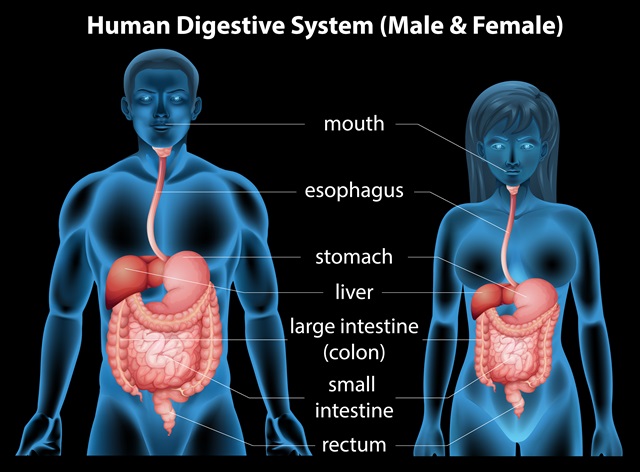Ever lost your appetite before a big presentation? Or perhaps you’ve been so anxious that you found yourself in need of a restroom. The gut-brain connection is very real. What affects our mind, affects our digestive system.
What is the gut-brain connection?
The gut-brain connection is the complex communication network between your brain and your gut. This interaction happens through a system of nerves, hormones, and biochemical signals that allow the brain and gut to directly influence each other. The vagus nerve – a large nerve running between the brain and gut, is constantly sending signals both ways.
But this connection goes beyond digestion. It also plays a major role in emotional stress and mental health. When you’re stressed or anxious, your brain can trigger reactions in your gut, causing discomfort like a stomach ache. Similarly, an irritated or unhealthy gut can send signals to the brain, affecting your mood, stress levels, and overall mental well-being.
How does stress affect the digestive system?
Stress has an immediate and noticeable effect on the digestive system and the longer the stress lasts, the more severe the symptoms become.
The effects of short-term stress:
When you’re experiencing short-term stress, your body releases the hormone cortisol to prepare for a potential threat. This “fight or flight” response causes a series of physical reactions like increased heart rate, rapid breathing, higher blood pressure, and muscle tension. While these changes help in emergencies, they can disturb the digestion process resulting in:
- A loss of appetite
- Slowing down digestion
- “Butterflies” in your stomach
- Stomach pain
- Spasms in the esophagus
- Indigestion due to increased stomach acid
Effects of long-term stress:
Long-term stress disrupts the balance of gut bacteria, known as the microbiome. It can harm the good bacteria, leading to more frequent and severe symptoms such as:
- Nausea
- Persistent indigestion
- Frequent constipation or diarrhea
- Ongoing stomach discomfort, pain, or bloating
Long-term effects of chronic stress:
Chronic stress, over an extended period, can cause lasting damage to your digestive health. The long-term effects of stress on the digestive system increase the risk of developing more serious GI disorders such as Irritable Bowel Syndrome (IBS), Inflammatory Bowel Disease (IBD), peptic ulcers, and Gastroesophageal Reflux Disease (GERD).
How to manage stress for your gut?
Stress and its impact on the digestive system can be managed, and many natural approaches can help. It’s a good idea to seek help from multiple healthcare providers who will work together to get the best results. For example;
- A gastroenterologist specializes in the digestive system and can diagnose and treat conditions related to the gut.
- A nurse Practitioner who has qualifications such as an online DNP program, can also help people adapt to digestive problems, answer questions, and prescribe medicines.
- A dietitian is a nutrition expert and can help you develop a healthy eating plan.
Eat gut-friendly foods:
Incorporating both prebiotics and probiotics into your diet is essential for balancing your gut microbiome. You can find prebiotics in foods like asparagus, bananas, garlic, and onions to help feed the good bacteria.
Probiotics introduce more beneficial bacteria into the digestive system and are found in fermented foods like kefir, kimchi, kombucha, yogurt, sauerkraut, and tempeh.
You could also try herbal remedies like ginger tea to calm your stomach or peppermint to ease spasms. CBD oil can help reduce intestinal inflammation.
Relaxation techniques:
Try incorporating these practices into your routine to help manage stress and protect your digestive system.
- Physical activity: Whether it’s a walk or a yoga session, choose something you enjoy so it feels rewarding.
- Self-care: Set aside time to do things that relax and recharge you, like reading, taking a bath, or a favorite hobby.
- Cut down on caffeine and smoking: Both can heighten feelings of anxiety.
- Mindfulness: Helps you stay present and calm. There are books and apps available to guide you through meditation.
- Deep breathing: Breathing exercises can quickly calm your body by lowering your heart rate and bringing you into a more relaxed state.
Foods to avoid:
Certain foods can contribute to inflammation and disrupt the balance of gut bacteria, leading to more digestive issues. Try to cut down on processed foods, refined sugar, gluten, dairy products, fried foods, and artificial sweeteners.
How to avoid stress-related digestive problems?
To prevent stress-related digestive issues, it’s important to maintain a healthy diet and consistently practice relaxation techniques. You might also consider probiotic supplements to support your gut health, or consulting with a healthcare provider for personalized advice on diet and stress management.
Taking steps today to care for both your mind and gut will help you manage stress and keep your digestive system healthy. If you’re unsure where to start or need extra guidance, reach out to your healthcare provider who will help create a plan that works for you.










